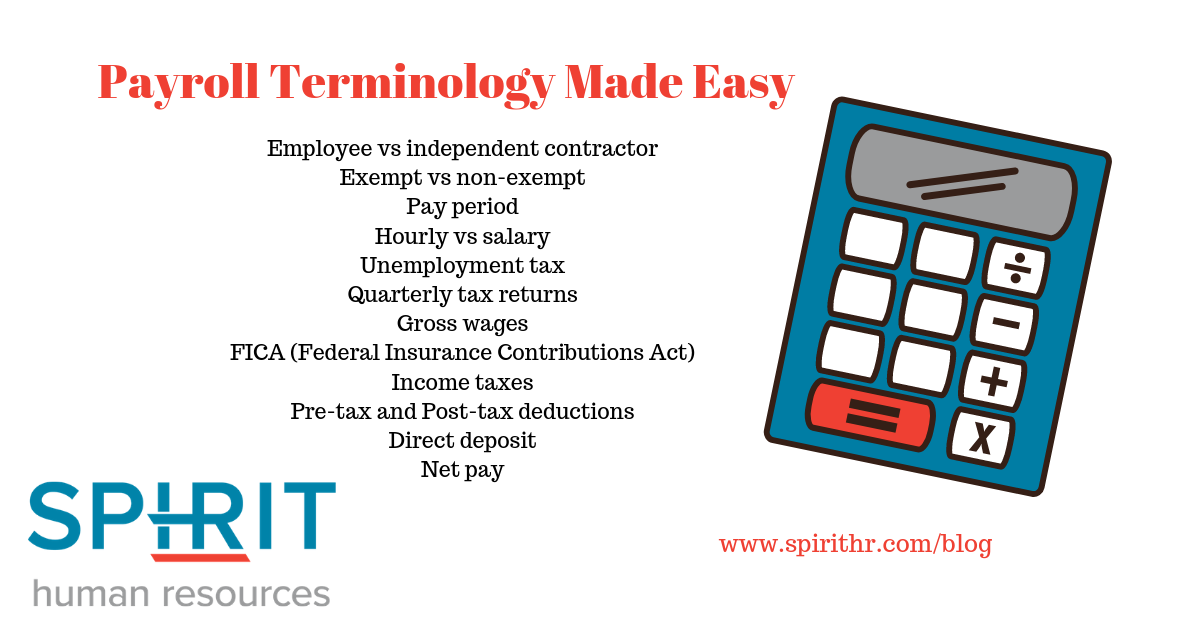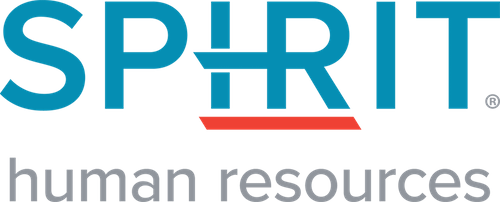Payroll Terminology Made Easy

Don’t despair, let us guide you on important terms used in either managing payroll or looking at a paycheck stub.
Managing Payroll
Understanding different classifications and practices help you stay in compliance with the DOL. Misclassifying employees can be costly if audited. You could owe back taxes or fines and penalties.
Employee vs. Independent Contractor – Employers must withhold payroll taxes and make certain benefits available to employees. Whereas contractors are responsible for their own taxes and benefits. The IRS defines who is an employee and who may be a contractor. It is important to know the difference.
Exempt vs. Non-Exempt – Employers pay exempt employees a salary and they are not eligible for overtime pay. Non-exempt employees may be either hourly or salary. The federal Fair Labor Standards Act (FLSA) requires employers to pay non-exempt employees time and one-half for hours worked over 40 per week. Certain states have wage laws with different overtime requirements.
Pay Period – The pay period is the time frame in which the employees worked and are being paid. Pay periods are generally weekly, bi-weekly or semi-monthly.
Hourly vs. Salary – Employers pay hourly workers a rate for every hour they work. These employees will keep track of the number of hours they work each pay period. Exempt salaried workers receive a set amount each pay period regardless of the number of hours worked.
Unemployment Tax – Unemployment taxes are due to cover the cost of unemployment insurance. Employers pay these taxes into the federal (FUTA) and state (SUTA) unemployment accounts.
Quarterly Tax Returns – Quarterly reporting to the IRS and state agencies lets them know how much tax was withheld from employees’ checks and the amount of employer taxes owed. Depending on the amount of taxes due, the IRS may require payments more frequent.
Pay Stubs
Gross Wages – this is the total amount of compensation for the pay period. This amount is before any tax withholdings or other deductions. Gross pay may include bonus, overtime, commissions or other pay besides to basic wages.
FICA (Federal Insurance Contributions Act) – are taxes withheld from employees and matched by employers that go towards Social Security and Medicare.
Income Taxes – taxes withheld from employees’ paychecks to pay federal and state taxes based on wages earned.
Pre-Tax Deductions – certain deductions from employees’ pay may be eligible for deduction before taxes are calculated. These are typically 401(k) contributions, health premiums or flexible spending contributions.
Post-Tax Deductions – deductions taken after taxes are calculated. These may include uniform costs, wage garnishments, voluntary insurance or charitable contributions.
Direct Deposit – the electronic transfer of an employee’s net pay directly into his/her bank or credit union. The use of direct deposit eliminates the need for a paper check.
Net Pay – the amount of pay an employee receives after deducting all taxes and other contributions. Also known as take-home pay.
Whether you are responsible for managing the payroll for your company, or you are an employee receiving a paycheck, understanding the terminology makes it easier.
Latest Blogs from Spirit HR
Culture by Design: How to Build a Company People Don’t Want to Leave
Culture by Design: How to Build a Company People Don’t Want to Leave When most people think about company culture, they think about ping-pong tables, snack bars, and casual Fridays. But real culture — the kind that makes people want to stay, grow, and thrive — runs...
Are You Wasting Money on HR? The Hidden Costs of Payroll, Benefits, and Compliance
The Hidden Costs of Managing HR the Old Way Many business owners believe they can’t afford a PEO (Professional Employer Organization). The truth? They’re already spending the money—but in an inefficient way. Most businesses rely on multiple HR service providers to...
Experience the New and Improved Spirit Connect
Running a business is hard—but managing HR doesn’t have to be. At Spirit HR, we are committed to making workforce management simpler, more efficient, and more intuitive for our clients. That’s why we’re excited to introduce new technology upgrades to Spirit Connect,...
